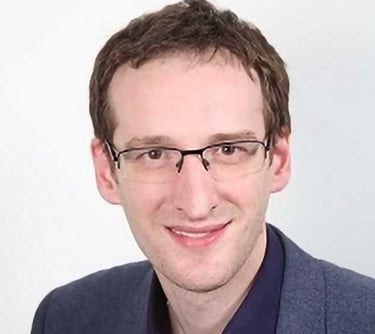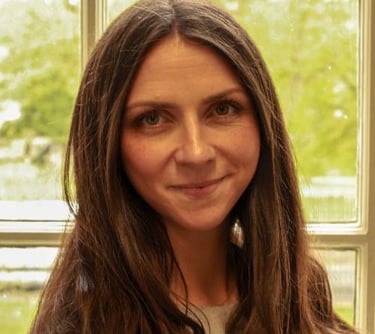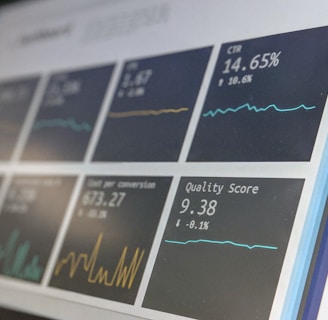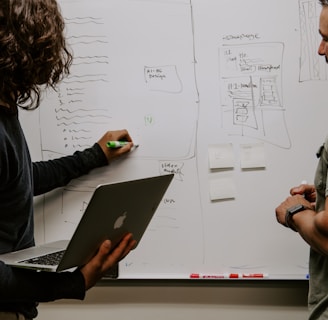Programme
The conference programme will feature expert keynote speakers, interactive workshops, oral presentations, and posters, with a welcome dinner on the first evening, Thursday 4th December, at Bush House.


Dr Tom Reader
London School of Economics and Political Science, UK
"Measuring Behaviour Through Patterns of Language"


Professor Sharon Marie Weldon
"Simulation for Collective Inquiry: Unpicking Complexity, Illuminating Practice, and Reimagining Healthcare"
Professor Janet Anderson
"Making Sense of Context: A Systems Science Approach to Healthcare Team Dynamics"
Invited Keynote Speakers


Dr Travis Wiltshire
Tilberg University, Netherlands
"Complexity Approaches to Team Coordination and Cognition in Medical Simulation-Based Training and Multidisciplinary Team Meetings"

Workshops


Creating resilient healthcare systems: putting the theory into practice
Professor Janet Anderson, School of Translational Medicine, Monash University, Melbourne, Australia.
Overview: Resilient systems (Safety II) are systems or organisations that successfully adapt to difficult demands to deliver acceptable outcomes. The focus is on how individuals manage the complex systems in which they work, and on designing those systems to support them to do so. Understanding and learning from the context of everyday work is therefore the basis of this philosophy. It complements traditional safety management practices (Safety I) which focus on learning from errors. The aim of this workshop is to equip attendees with a good understanding of this new perspective, and explore how it can contribute to improving the quality and safety of care, and staff experience.


Using textual data in research
Dr Tom Reader, Department of Psychological and Behavioural Science, London School of Economics, London, United Kingdom.
Overview: Traditionally, we have studied patient safety through self-report methods (e.g., interviews, surveys), observations, and case data. Yet, increasingly, new forms of digital textual data are available to researchers: ranging from conversations, to staff feedback, to complaints, to incident reports. These data can be studied at the micro-level and the macro-level, using a combination of qualitative and quantitative techniques. In this workshop, we will explore the forms of data that people have access to, and consider how they might use it in research and practice to advance the field.


Unpacking Social Interactions and Organizational Dynamics in Behavioral Science: A Workshop on Methods and Theories with a Focus on Digital Healthcare Technologies
This session will be facilitated by Dr Jonas Thorborg Stage. Jonas is part of King's College London as a Visiting Research Fellow and Postdoc at Copenhagen University, Section of Health Service Research.
Overview: Qualitative methods and social science theories help us to understand real-world settings and people's interactions. They are useful for understanding unintended consequences and factors that shape the behaviour of health professionals and the value gained as end-users of digital health technologies. They offer rich insights and theoretical explanations of why health professionals expend a significant amount of energy and time searching for relevant patient information. This session introduces sociotechnical literature on data work and data experience, together with an implementation framework from a digital health project that aims to support health professionals' collaborative work with patient data. This session provides conceptual tools and examples to inspire participants to consider social interactions and organisational factors. We will discuss the opportunities and challenges of working this way from a Nordic perspective, where data-driven and data-informed solutions aim to enhance patient care, interdisciplinary collaboration, and healthcare delivery.


Team Research Reimagined: Applying Diverse Perspectives on Team Interactions
This session will be facilitated by Dr. Sandra Keller, Prof. Dr. Josette Gevers, Dr. Travis J. Wiltshire, Dr. Julia Seelandt, Prof. Dr. Margarete Boos, and Prof. Dr. Juliane Kämmer, each bringing ample experience with at least one of these approaches.
Overview: This interactive workshop showcases how different methodological perspectives can enrich our understanding of the temporal coordination of teams. Participants will broaden their methodological toolkit through hands-on activities and discussions with experts in two complementary approaches: (1) behavioral observations and guided recall, and (2) physiological dynamics using computational approaches. The workshop begins with brief introductions to both perspectives. Participants then join expert-led subgroups for deeper exploration before reconvening to collect and analyze data using their approach while a four-member team plays a game. This interactive setting provides a unique opportunity to compare how different data sources complement one another and to reflect on the added value of methodological diversity in team research. Participants in this workshop should watch this short, three-minute video in advance of the session: video.
Planning and Facilitating Co-design Workshops
This session will be facilitated by Professor Glenn Robert, Dr Lili Golmohammadi, and Patient and Public Involvement and Engagement member Mel Getty. They are part of the co-design team of the EPSRC-funded King's Health Partners Digital Health Hub.
Overview: Co-design workshops offer a flexible and exploratory space to collaborate, generate insights, ideate, and verify and review a project’s direction. They offer a joint experience for the end users who take part, are an efficient and fun way to scaffold the introduction of concepts and design methods, and gain end-users’ creative trust and input. This session introduces co-design workshops in the context of digital health. These workshops often bring together a several methods (mind mapping, and rapid prototyping). We will discuss the opportunities and challenges of taking this approach, and offer case studies, practical tips, and activities to support co-design workshop planning and facilitation.



Scientific Programme
